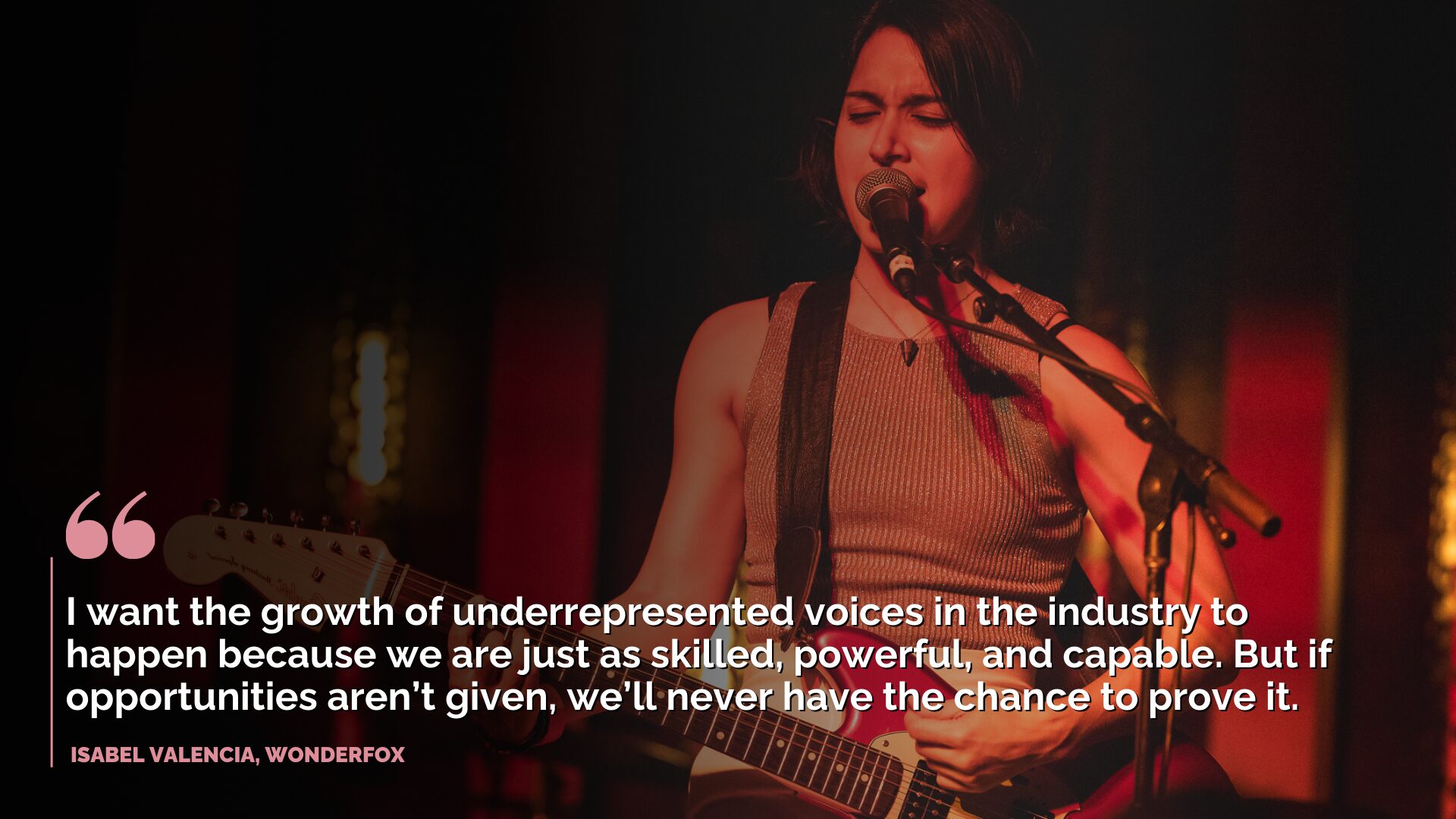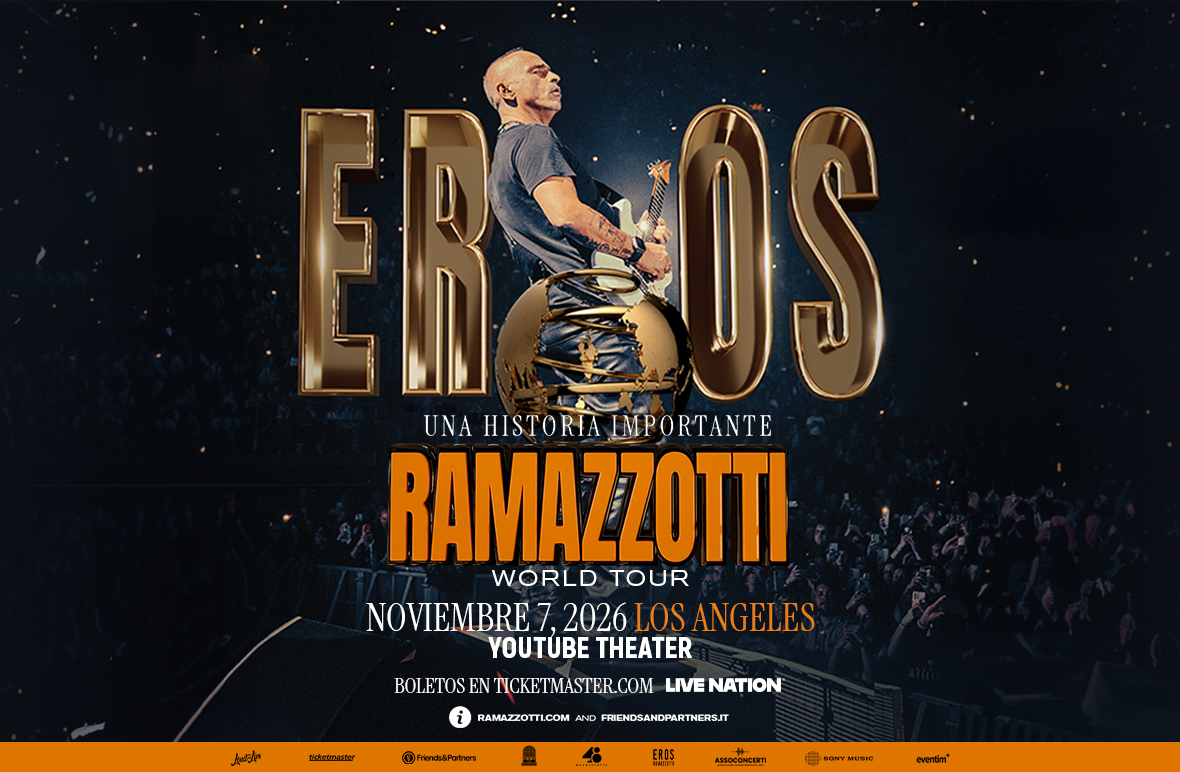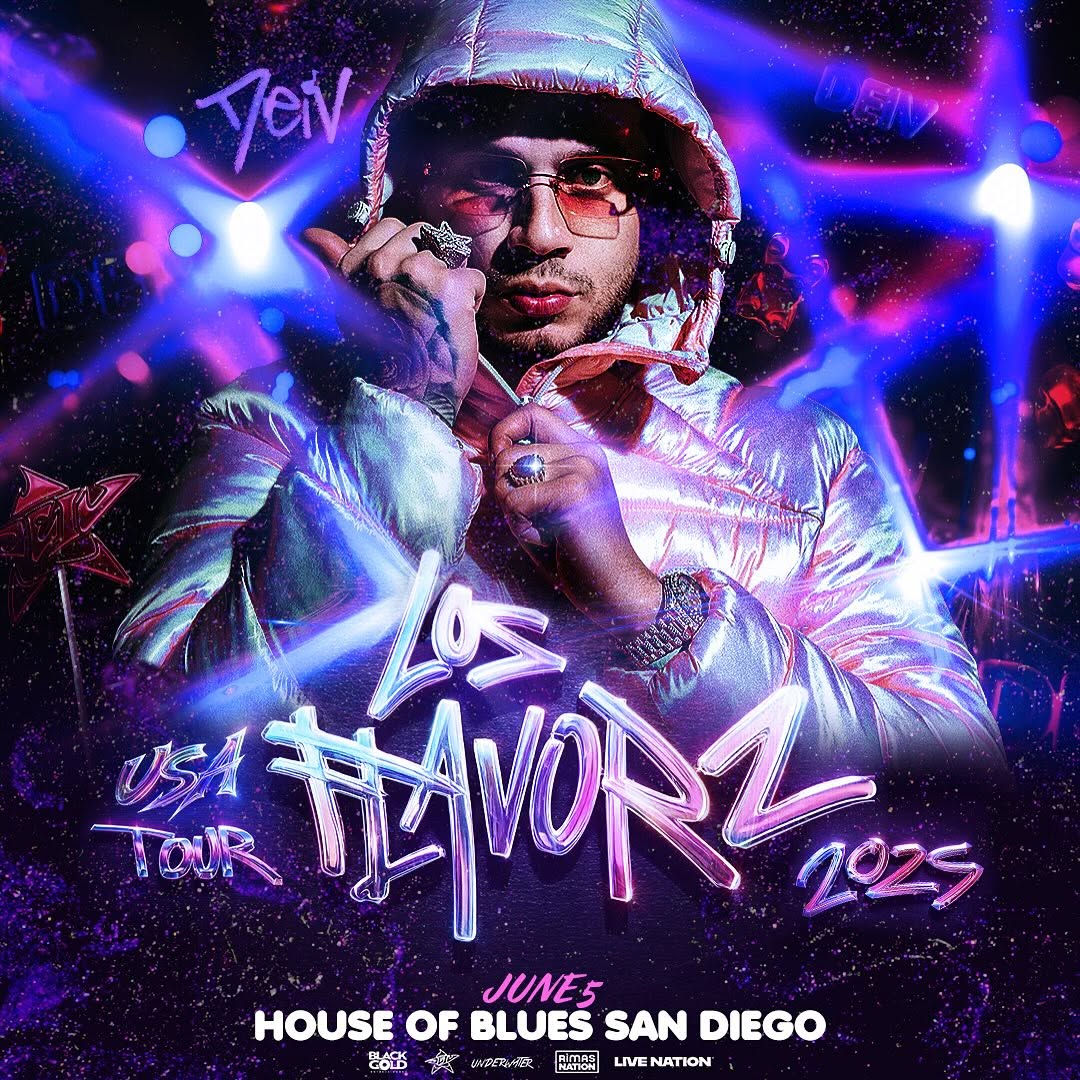The singer doesn’t shy away from the darker moments—battling creative blocks, facing industry pressures, and experiencing a period so painful that she nearly walked away from music entirely. Yet, through it all, she found her way back, using songwriting as both an anchor and a form of healing. It’s in these raw, unfiltered experiences—both the highs and the lows—that Isa has built the resilience and authenticity that define Wonderfox today.
MUSIC AS A LIFELINE: ISABEL VALENCIA’S STORY OF SURVIVAL AND CREATION
In this exclusive interview with Visión Music Magazine, Isa opens up with striking vulnerability, sharing not only her triumphs but also the struggles that have shaped her as an artist. She reflects on the excitement of performing alongside her musical heroes like La Ley, Julieta Venegas, and Café Tacvba; and the deep fulfillment of hearing audiences chant for more after playing songs the band released during the pandemic.
From Colombia to the City of Angels. Tell us about your music journey:
As a kid, my siblings and I used to pretend playing in a band. And at age 13 I miraculously found a guitar under one of the beds in my home. Until this day, we don’t know who it belongs to. That same week, my school started offering free guitar lessons which I saw as divine intervention.
At first I was playing Colombian folklore but I wanted to play rock, I wanted to play Nirvana, Pixies, and The Cure. I decided to figure out the chords of the songs I liked on my own. Then my teacher recommended I also studied bass because I was doing so well with my guitar lessons, and he also wanted me to help at the church music group, and that’s how everything started!
Which bands inspired your love for music?
My older sisters were a big influence in my music taste. They moved to the US when I was a kid and used to send me songs by Radiohead, Smashing Pumpkins, Pixies, but the ones that really reached my heart were The Cure, Janice Joplin, Björk, and Soda Stereo. I wanted to play and sing like Gustavo Cerati.
What has been an impactful musical moment that has stayed with you?
Opening for Julieta Venegas and her telling me at the end of our set, “Hey, that was so cool. Congrats”. I remember feeling realized that Julieta herself said those words.
We were also traveling with Café Tacvba, which is a band that has the best concert logistics and are the best people, so talented. They used to check and enjoy our music during soundcheck. Another nice moment during this tour was playing our latest album “Laberinto”, released during the pandemic and finally knowing how these songs felt live, seeing people’s reactions, and seeing attendees ask for another song with “¡Otra, otra, otra!” at the end of our setlist. That was an incredible experience because you don’t see people asking openers for more songs. My eyes used to fill with tears every time that happened.
Another significant moment happened with La Ley at the Greek Theater, during a soldout show. Beto asked me to sign “El Duelo” with them. I was extremely nervous and excited, because I had big shoes to fill singing Ely Guerra’s part. But Beto then told me, “I don’t want you to sing like Ely Guerra, I want you to sing like Isa”. I did it and it felt like running a marathon in three minutes.
How do you feel about the current music landscape and your role in it?
I love that we are in a time of degenerates, this means that we don’t have a particular genre we only listen to. We no longer have extremist music taste. It’s no longer rock and nothing else. With social algorithms you get songs from various genres and that helps people evolve with diverse playlists.
We are also crossing musical barriers. Singing in Spanish is no longer perceived as a type of music that should only belong to certain genres. We can produce any type of melodies and be quite successful. For example, I love seeing non-Spanish speakers sing Bad Bunny songs, it is something spectacular.
What have been some of the advantages and disadvantages of making music in the age of social media and Spotify?
I think the artist has a big challenge, which is not letting numbers dictate their music. Do not forget your essence and that inspiration that made you start producing songs. I also try to remember it for myself because I forget it all the time with questions like “Why don’t I have more listens on Spotify? Why isn’t my following growing?”
This is a lesson I learned during my first album “Cómo entrar y salir de un laberinto”. After this release something intense happened in my life that led me to depression, I remember saying “I quit!”, and I was not only quitting music, but quitting life, quitting me. I was extremely depressed and the people in my life pushed me to bring Wonderfox back. I finally did it because I felt like I was dying without music.
Creating an album saved my life. It’s not about numbers for the artist, it’s only about music. Even if retribution isn’t great, the greatest payout is how our soul feels. I needed to make songs in order to save myself. I had to make a colossal catharsis to help me remember music.
What helped you overcome challenges during your musical career?
I’m quite a spiritual person and I tried to reprogram my mind when I was in pain. This is a daily task because feeling anxious or depressed means that you have told yourself a particular belief thousands of times, making it your reality. I had to change that idea I had accepted with positive truths. I had to relearn my life, how to treat myself better and how to talk to myself in a better light.
What is a phrase or piece of advice that you keep in mind when facing musical challenges?
My current drummer, Argel, gave me some advice in the form of a question. He asked me why I hadn’t released new music in a few years. I told him that I had a creative block and couldn’t come up with anything. He then said that creativity is also something you have to practice. That blew my mind! As an artist you believe that creativity only comes from inspiration every once in a while. But that’s not completely true, creativity also comes from discipline, from working on it daily, and from programming a space to create songs.
What’s next for Wonderfox in 2025?
This year I’m focusing on creating new music. I’m so excited about this next album, I believe a lot of people will feel connected to these new songs. Even my manager told me that these new songs feel like I’m in a new era, and a new creative time. My first album was for myself, to help me get out of a bad situation, the second album had an introspective view and this third album will be a gift, an art that I’m giving away.
Why is it important to have more female songwriters, producers and artists in the industry?
It’s absolutely critical to have balance in the industry. There are so many more artists of all genders creating music, yet when we look at festival lineups, that diversity isn’t always reflected. I want the growth of underrepresented voices in the industry to happen because of talent and merit—because we are just as skilled, powerful, and capable. But if opportunities aren’t given, we’ll never have the chance to prove it.
 To stay connected with Wonderfox and follow Isa Valencia’s journey, make sure to keep up with the band on social media or follow their official Spotify account to never miss a new single, and stay tuned for upcoming performances near you. The next era of Wonderfox is just beginning, and you won’t want to miss what’s coming next.
To stay connected with Wonderfox and follow Isa Valencia’s journey, make sure to keep up with the band on social media or follow their official Spotify account to never miss a new single, and stay tuned for upcoming performances near you. The next era of Wonderfox is just beginning, and you won’t want to miss what’s coming next.




